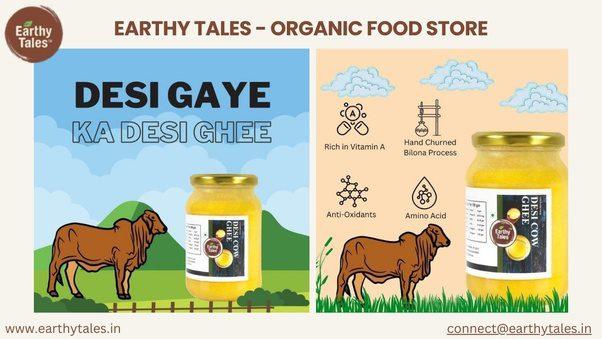The Sustainability Factor: How Organic Flours Impact the Environment
In recent years, organic flour has become available in physical supermarkets and online. This is not only healthy but also sustainable. Learn more about why organic flour is a wise choice
Flour is one of the most used ingredients in cooking, especially to make cakes, bread, biscuits, pastries, and many other things. However, not all flours are the same nor do they have the same impact on our health and the environment. When it comes to taste and texture, most bakers agree that it is important to purchase organic flour. As well as quality control, organic flour ensures a high level of quality. If anyone wants to live a healthy lifestyle and care about the environment, they can buy Organic Atta online in Delhi.
In this article, we tell you what organic flour is, its types and how can it impact the environment.
What is Organic Flour?
Organic flour refers to flour that is produced using organic farming practices and meets standards and regulations specific to organic production. The cereals used are grown without the use of chemicals such as pesticides and chemical fertilizers.
Genetically modified organisms (GMOs) are also banned. Grains for organic flour are grown on organic farms focused on sustainability, preserving soil health, and protecting biodiversity. The use of natural methods and organic pesticides is common in the production of organic flour.
Types of Organic Flour and Characteristics
Currently, there are many types of organic flour and each one has different characteristics. Experts highlight the main ones:
Wheat flour:
It is the most used today both for economic factors (it is easy and cheap to grow) and organoleptic factors (it has a pleasant and mild flavor). Although it is mainly made up of carbohydrates and proteins, of which approximately 80% is gluten.
Whole wheat flour:
It is obtained from the whole grain, which gives it a darker color and is much more interesting. From a nutritional point of view, it has a higher content of proteins, fiber, vitamins, and minerals. This is a common substitute for Rice flour. Furthermore, it is used as a thickener in refrigerator and freezer recipes to prevent liquid separation. You can buy Organic Rice flour online from anywhere in the world.
Oat flour:
Its consumption is becoming popular in Delhi due to its great versatility for making both sweet and savory dishes and its high nutritional value. As long as you opt for a whole grain version, it has higher protein content (around 14 grams per 100) and healthy fats (around 7 grams per 100) than other flours.
Corn flour:
It is one of the main organic flours used by those who cannot take gluten since it lacks it. Its consumption provides practically the same calories as wheat flour (about 350 Kcal per 100g) but has a higher concentration of fat and less protein and vitamins. As for fiber, its consumption provides practically the same amount as refined wheat flour (3 grams per 100 grams).
Buckwheat flour:
Like corn flour, it is gluten-free, making it suitable for those who suffer from celiac disease. It is usually used to make noodles, porridge, or cookies. However, it is much more advantageous flour than corn flour. It contains a higher percentage of protein and fiber. In addition, it provides lysine, an amino acid that does not appear in other cereal flours, and a good amount of magnesium and potassium.
Chickpea flour:
It is the most used legume flour today and is obtained by grinding dried chickpeas, roasted or not. This type of flour stands out mainly for its high protein content. It also has a high fiber and vitamin content, among which folic acid stands out. It is increasingly used in the preparation of all types of recipes.
The Benefits of Organic Flour
Organic flour is milled from pesticide-free grains grown in soil fertilized only by natural substances.
The harvested grain is stored without fumigants or irradiation. If you are worried that pesticides and other synthetic agents will penetrate the wheat plants and then be present in the flour, then organic flour is undoubtedly an excellent alternative!
Some enthusiasts swear that organic flour makes for tastier baked goods but generally speaking, organic cultures promote the development of taste and aromas. Buying organic flour also helps support organic farming in general as well as reducing the impact on our environment. Wide use of fertilizers and pesticides presents a risk of polluting underground areas, thus threatening wildlife.
Concentrations of toxic residues build up until the diets of animals at the top of the food chain are toxic, potentially contaminating entire species. Organic farming leaves a lower carbon footprint, which at the same time helps fight global warming.
Conclusion
Generally speaking, organic foods are a little more expensive but don't think the difference is that big. Now, the organic industry is well developed and has seen traditional agri-food players rush into it, which has made it possible to reduce costs drastically. So don't hesitate to look for the organic equivalent of your usual foods.
About Earthy Tales
Founded in 2017 by Deepak Sabharwal, an ex-TATA, GE and Pepsi alumni, Earthy Tales is NCR’s most loved community led organic food brand, which works with organic farming communities to promote natural farming and city communities to increase awareness about Clean, Chemical free food.
Deepak quit his corporate life of 20 years to make our soils and food plate free of pesticides as Earthy Tales purpose.
You can read his inspiring story on: theorganicmagazine.com/meet-the-plantpreneur/deepak-sabharwal-some-earthy-tales
Source URL:- https://blognow.co.in/the-sustainability-factor-how-organic-flours-impact-the-environment

.jpg)

Comments
Post a Comment